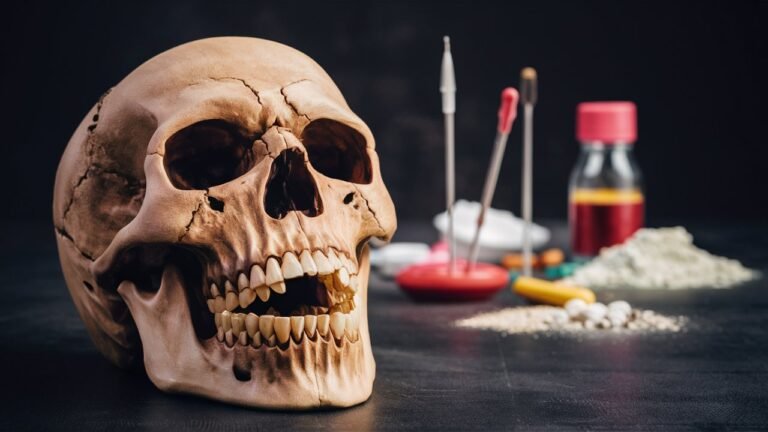The connection between substance use and overall health is widely understood, but its specific impact on oral health is often overlooked. Drug use can have devastating consequences for your teeth and gums, leading to a rapid decline in dental wellness that goes far beyond cosmetic concerns. Understanding these risks is the first step toward prevention and recovery.
This article explores the significant oral health consequences associated with various types of drug use. We will examine how different substances directly and indirectly damage your mouth, leading to severe decay, gum disease, and other painful conditions. Recognizing these effects highlights the importance of prioritizing oral health as part of a holistic approach to well-being.
The Direct Impact of Substances on Your Mouth
Many illicit drugs have properties that are inherently destructive to oral tissues. The chemical composition of these substances, combined with how they are consumed, can create a perfect storm for dental problems.
Tooth Decay and Enamel Erosion
Several substances are highly acidic and can directly erode tooth enamel, the protective outer layer of your teeth. This erosion leaves teeth vulnerable to cavities and extreme sensitivity. Methamphetamine, for example, is notorious for causing rampant tooth decay, a condition often called “meth mouth.” This is due to the drug’s acidic ingredients and its tendency to cause severe dry mouth.
Dry Mouth (Xerostomia)
A common side effect of many drugs, including cannabis, heroin, and prescription painkillers, is xerostomia, or severe dry mouth. Saliva is essential for oral health; it neutralizes acids, helps wash away food particles, and has antimicrobial properties that prevent decay and gum disease. When saliva production is reduced, the risk of cavities, fungal infections like oral thrush, and gum inflammation increases dramatically.
Indirect Consequences on Oral Hygiene
Beyond the direct chemical effects, drug use often leads to behavioral changes and neglect that compound oral health problems. These indirect factors can be just as damaging as the substances themselves.
Neglect of Personal Care
When individuals are struggling with substance use, basic self-care routines like brushing and flossing are often abandoned. This neglect allows plaque to build up on teeth, quickly leading to tartar formation, cavities, and gingivitis. Poor nutrition, another common issue, deprives the body of the essential vitamins and minerals needed to maintain healthy teeth and gums.
Bruxism and Jaw Pain
Stimulants like cocaine and methamphetamine can cause bruxism, which is the involuntary grinding or clenching of teeth. This constant pressure can lead to worn-down or fractured teeth, jaw pain, and temporomandibular joint (TMJ) disorders. The damage from bruxism can be severe, often requiring extensive dental work to repair cracked or broken teeth.
Long-Term Effects and Pathways to Recovery
The cumulative effect of drug use on oral health can lead to irreversible damage, including widespread tooth loss and advanced periodontal disease. Advanced gum disease not only destroys the tissues supporting the teeth but has also been linked to systemic health issues, including cardiovascular problems.
Rebuilding Oral Health
For those in recovery, addressing dental damage is a critical step in regaining their health and confidence. The path often begins with a comprehensive dental examination to assess the extent of the damage. Treatment may range from fillings and crowns to more complex procedures for replacing missing teeth. In cases of significant tooth loss, restorative solutions like full mouth dental implants in Stuart FL can offer a permanent and functional way to restore a person’s smile and ability to chew properly.
Addressing these dental issues is more than just a cosmetic fix; it is an important part of physical and psychological healing. A healthy smile can restore self-esteem and support a person’s long-term recovery journey.
Your oral health is a vital part of your overall well-being. If you are concerned about the effects of substance use on your dental health, seeking professional help is a crucial first step toward healing and a healthier future.
